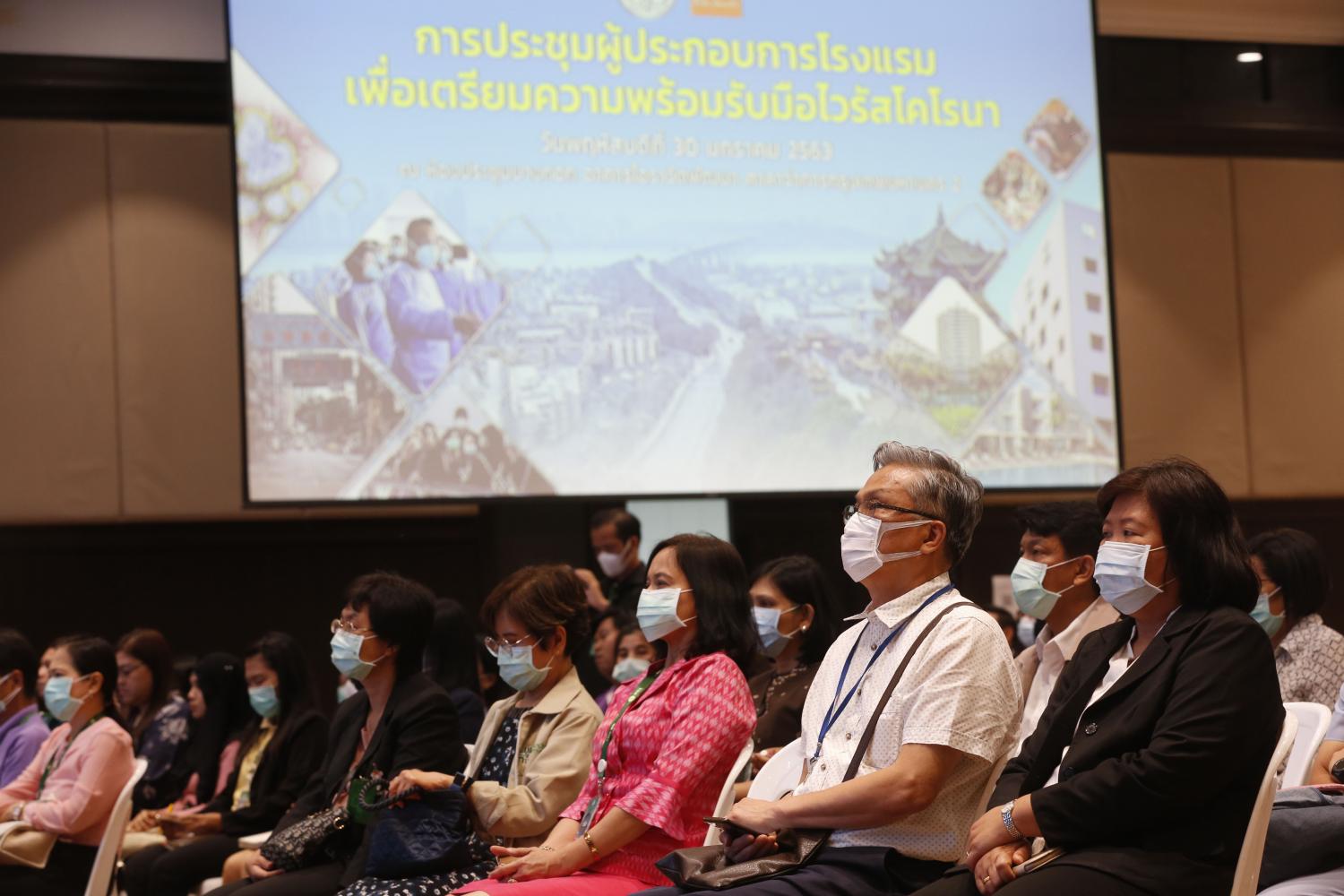
The spread of the new coronavirus strain and the delay in the fiscal 2020 budget bill will dampen the economy, which will grow at a softer pace than expected in the first quarter and the full year, adding to the likelihood of a policy rate cut at next week's meeting, says a key central bank official.
Economic growth for the three months to March is expected to be subdued, said Don Nakornthab, the Bank of Thailand's senior director for economics and policy.
The central bank has predicted economic growth of above 2% for January to March and 2.8% for 2020.
Mr Don said the Bank of Thailand predicts foreign tourist arrivals to slide considerably in the first quarter, possibly leading to a contraction for the period.
Foreign travellers average 3-4 million a month, of whom about 1 million are Chinese.
"Chinese tourists usually average 3 million per quarter, of which 1-2 million are expected to be shaved off in the first quarter," Mr Don said.
Foreign tourist arrivals rose 2.1% year-on-year in the first quarter of 2019.
If the virus spread is brought under control within two months, the situation will gradually improve, Mr Don said.
He said the fiscal budget delay is another threat for the economy this year, threatening to puncture domestic investment in both the public and private sectors.
The delay is not expected to take a big bite out of the economy if the fiscal 2020 budget can start in April. Overall economic activity in the fourth quarter of 2019 continued to decelerate, Mr Don said.
The continued contraction of merchandise export value has hit domestic economic activity more apparently. Private consumption indicators decelerated relative to the first half of 2019, in line with softening non-farm income and consumer confidence despite support from the government's stimulus measures.
Only the tourism sector remained a bright spot in the final quarter of last year, due to a low-base effect that stemmed from the fatal tour boat accident in Phuket in late 2018.
Thailand's GDP growth rates for both the fourth quarter and the full year of 2019 were likely below the central bank's projections of 2.5%, Mr Don said.
In December 2019, the economy improved slightly.
The value of merchandise exports, manufacturing production, private investment indicators and public spending contracted at a lesser rate. Private consumption indicators in December expanded at a pace close to the previous month's, while the tourism sector expanded at a slower pace.
Kasikorn Research Center said in a note that monetary policy must play a vital role in propping up the economy, as fiscal policy alone cannot drive growth.
The central bank is expected to slash the policy rate by at least 25 basis points from the current record low of 1.25%, the research house said.